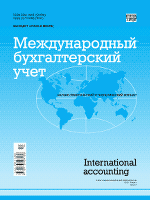Abstracting and IndexingÐÈÍÖReferativny Zhurnal VINITI RAS Worldcat Google Scholar Online availableEastvieweLIBRARY.RU Biblioclub |
Auditor's report and its information capabilities from the view point of the users of financial statements
Available online: 5 December 2014 Subject Heading: AUDITING JEL Classification: Pages: 56-65
As a final document of audit, the auditor's report reflects the auditor's opinion on reliability of financial statements of the audited entity and increases users' confidence in the figures contained therein. On the basis of this document, the users of financial statements make economic decisions relying on the auditor's expertise and hoping that the auditor's opinion bases on the honesty, fairness and independence of the auditor from the audited entity. Unfortunately, the practice shows that this does not always happen. This topic is particularly relevant in the context of transition of the Russian audit to international standards. Though the standards encourage auditors to seek to compliance with the conceptual framework of auditing activity and set certain requirements for conducting an audit and formalizing its results, yet they cannot guarantee the quality of auditor work. The article summarizes information related to possible interpretation of auditor's report by users of financial statements and considers its elements and types. The authors investigated the basic elements of an auditor's report based on the analysis and synthesis of requirements of the Russian and International Auditing Standards, as well as the Russian and foreign practice of financial audit. The authors studied the Russian and foreign practice of financial audit and developed recommendations enabling the users of financial statements to focus on important points of the auditor's report and to avoid possible errors while making management decisions. The authors also substantiated the need to modify the effective auditing standards to increase the information value of the auditor's report for the users of financial statements. In circumstances, where there is a gap between the expectations of users of financial statements and the results of auditors' work, it is especially important to perceive information contained in the audited financial statements and the auditor's report through the prism of rational skepticism. Keywords: audit, auditor's report, financial statements, information, reporting References:
|
ISSN 2311-9381 (Online)
|
|








